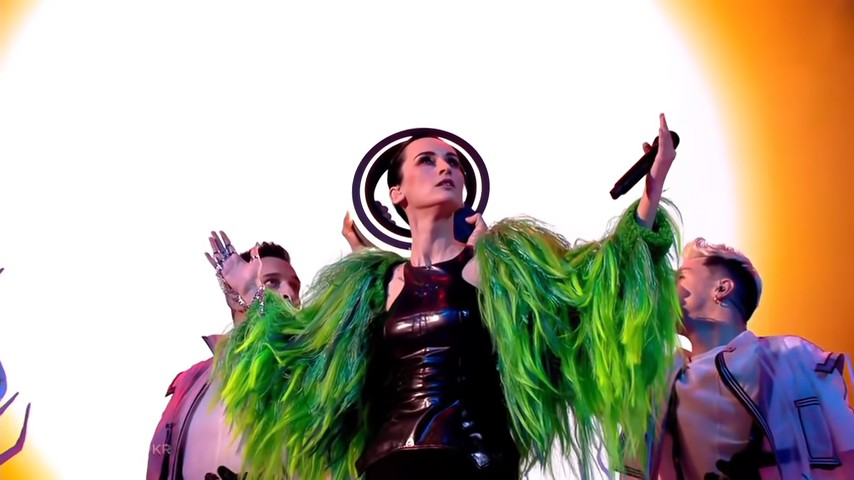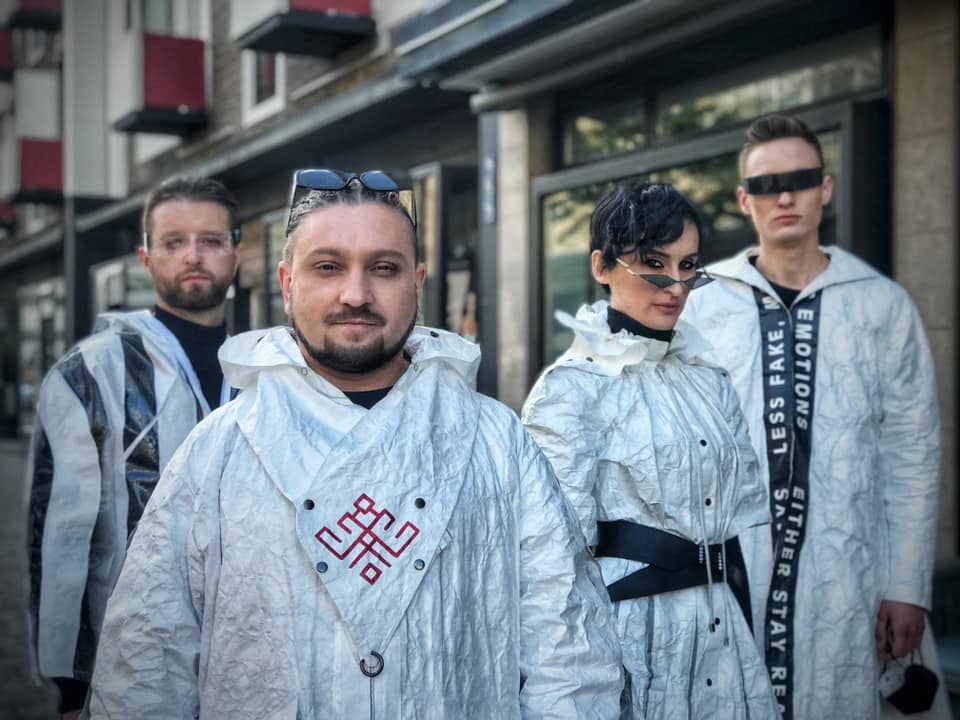On 18 May, the Ukrainian electro-folk band Go_A made it to the finals of the Eurovision song contest.
In Rotterdam, the city hosting Eurovision 2021, Go_A presented a Ukrainian-language song called "Shum" ("Noise"), which was praised by Eurovision fans for standing out among other performances. Apparently, it impressed Eurovision bookies, because Ukraine's odds jumped to fourth place after the qualification.
What makes the song "Shum" so different?
Go_A's act in Eurovision 2021 semi-final:
"Our stage is basically an allegorical raft that we use to travel from past to the future. Our staging is like going from our Ancient Ukrainian roots to modern cyberpunk. It has a lot to do with Ukrainian mythology and Ukrainian culture," Taras Shevchenko, band's founder, composer and co-writer, told Escxtra earlier.Go_A's "Shum" is a fast-pacing electronic song with pronounced folk groove and vocal, accompanied by a catchy tune performed in the sopilka - a Ukrainian folk recorder flute. The song "Shum" is based on traditional namesake vesnianka, an ancient Ukrainian spring song. Vesniankas were part of pre-Christian spring rituals associated with the beginning of spring and the approach of spring fieldwork. In the last 150 years, ethnographers recorded multiple versions of lyrics of the original vesnianka "Shum." It was not only a spring song but also a folk dance. The lyrics of Go_A's "Shum" contain various typical folk agricultural and animistic motifs and are basically a call on the spring to come (the full translation is available on Wiwibloggs)
The catchphrase of the chorus translates toOh Spring song, Spring song
Where have you spent your Winter?
In the garden, sitting on a maple tree
You’ve been spinning a shirt.
...
Come Spring, come
Don’t wait around
We’ll go outside
to love each other.
Sowing, sowing, sowing, sowing hemp plants,
Sowing, sowing, sowing, sowing green ones.
Go_A band at the opening ceremony of the Eurovision Song Contest 2021 on the Turquoise Carpet wearing raincoats from the project Fashion VS Fakes for raising awareness against fakes and for teaches critical thinking.
"This is a very important event for us, personally for each of us, because we all care about Ukraine. And we want the Ukrainian language to be heard not only within our country but also abroad because it is beautiful! We have a great culture, we have great music, great folklore, and we want to convey that to other people."The Grand Final of the contest is going to take place on 22 May 2021. Since its first participation in the Eurovision contest in 2003, Ukraine has always made it to the finals. Two times, Ukraine won Eurovision - with Ruslana's "Wild Dances" in 2004 and Jamala's "1944" in 2016.
Read also:
- Beyond Go_A: a playlist and guide to modern Ukrainian folk music
- Why was Ukraine’s Eurovision performance by Go_A so mesmerizing?
- The secret of Kateryna Pavlenko, Ukraine’s enigmatic Eurovision singer
- How Ukrainian artists broke into the global art scene after the Euromaidan Revolution
- Ukraine’s 30: prominent Ukrainians who changed the country and the world. Part 1: Culture
- The three Ukrainian women breathing new life into ancient musical traditions
- Explosion of new Ukrainian music after introduction of protectionist language quotas
- Kyiv is becoming the world’s music video capital: 12 iconic clips
- Five things to know about the Eurovision song contest in Kyiv
- 8 shades of Jamala, Ukraine’s Eurovision contestant
- Crimea comes to Eurovision
- Eurovision winner Jamala releases music video for ‘1944’
- Five things to know about the Eurovision song contest in Kyiv (2017)
- After visiting Eurovision, most EU citizens want to see Ukraine (2017)
- How Eurovision became the Kremlin's mousetrap (2017)
- Phone app brings 40 Ukrainian classical composers into your pocket
- Bondi Vesolovsky and Yabtso Jazz: swinging Lviv in the 1920s
- Explosion of new Ukrainian music after introduction of protectionist language quotas (2019)








